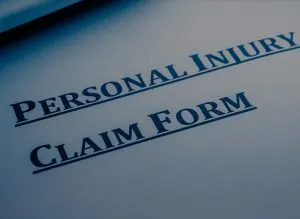Southernmost parts of the United States were recently devastate by hurricanes Harvey and Irma, causing hundreds of billions of dollars in damages and hundreds of lives lost. Fortunately, the metro-Atlanta area was affected with only thunderstorms and power outages. This caused millions of people traveling from Florida and more southern areas to travel north towards Atlanta to escape the storms.
Although Georgia did not see the damage that was experienced in other areas of the U.S., effects of the hurricanes were felt both in the weather and on roadways. Driving carefully becomes more difficult while navigating through storms, such as those caused by the hurricanes. The increased number of vehicles on roadways during natural disasters such as this only adds to the danger. Not only that, but this time of year is known for stormy weather in the Marietta area. Here are some tips that can reduce the risk of being in an accident while driving in a storm:
- Use your headlights. Many vehicles on Georgia roadways are equipped with automatic headlights and taillights, so the vehicle determines when safety would be increased with lights on. Without this automatic feature, though, it can sometimes be difficult to determine when headlights should be turned on. A good rule of thumb is that if your windshield wipers are on, your headlights should be on as well. People often forget because they may still be able to see roads in a storm. Headlights and taillights increase your vehicle’s visibility greatly in a storm.
- Allow yourself more travel time. This is a helpful tip in all driving situations, but is especially true in inclement weather. Leaving a few minutes early will allow for more time to drive slower and more cautiously. Simply lowering your speed seriously reduces chances of being involved in an accident. So plan accordingly and give yourself time to carefully reach your destination.
- Avoid cruise control. Cruise control is a great automobile feature that is especially beneficial when driving long distances or on straight roads. Commuting throughout the metro Atlanta area provides ample opportunity to utilize cruise control. However, this feature can lead to drivers removing their feet from the pedals and become too comfortable when behind the wheel. This can lead to slower reaction times, and a higher chance of slamming on the breaks. Especially during storms when quick reactions can be the difference in an accident and safe arrival, cruise control should be avoided.
- Be cautious of larger vehicles. Freight trucks and RVs are examples of vehicles to be extra careful driving near during bad weather. The unpredictability of large vehicles can cause accidents, even sometimes that aren’t necessarily the driver’s fault. Strong winds, for example, can blow larger vehicles in and out of lanes. They also require a longer distance to stop, and it can be harder to judge during bad weather. So give such vehicles necessary space to help avoid an accident during stormy weather.
- Prepare your vehicle. It’s always recommended to check your car’s maintenance before driving, such as testing blinkers and checking for leaks. But would someone check their windshield wipers if it were sunny outside? It would be a dangerous situation to be driving during a storm with windshield wipers that do not work. Staying on top of maintenance and regular roadway checks can radically reduce your chances of being in an accident.
From everyone at Jones & Swanson, our thoughts and prayers go out to those who have been affected by Hurricanes Harvey and Irma. Drive safely and help ensure everyone’s safety while on the road.



